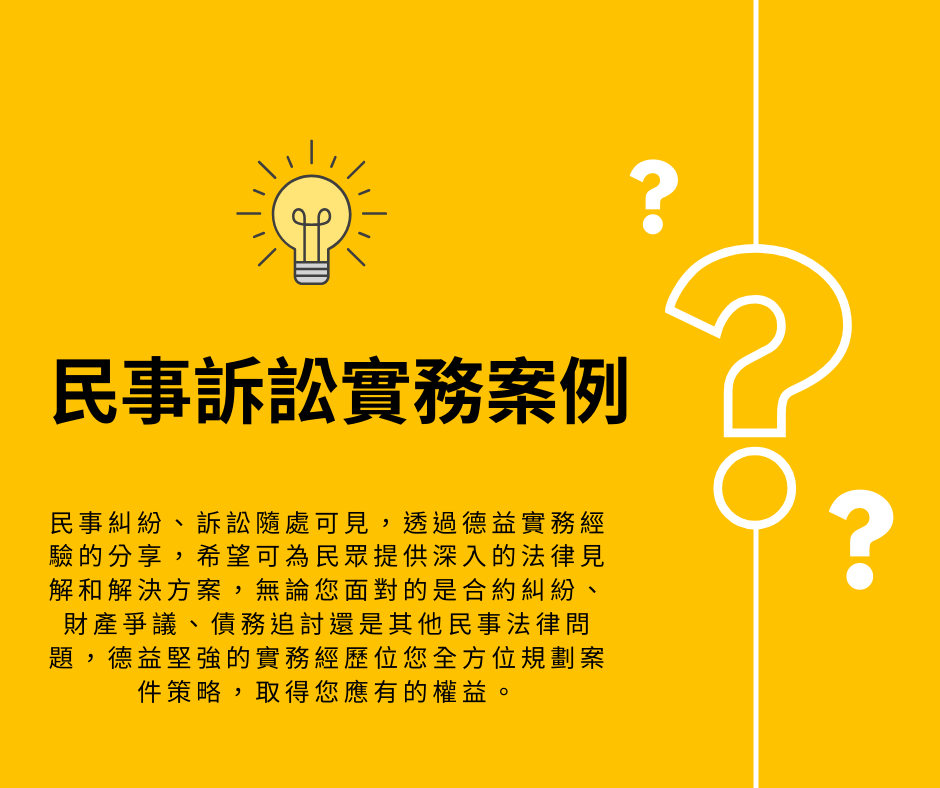首頁 > Case Studies
Case Studies | Negligence of Supermarket! Joint Liability of Employee and Employer

In contemporary workplaces, employees may inadvertently or intentionally infringe upon the rights of third parties while carrying out their duties. This includes not only actions directly related to their job duties but also those closely associated with their roles. Under what circumstances can an employer be held jointly liable for damages resulting from the negligence of an employee?
Joint Liability of Employee and Employer
According to Article 188(1) of the Civil Code: "If an employee infringes upon the rights of others unlawfully while performing his duties, the employer and the actor shall be jointly liable for damages. However, if the employer has exercised due care in selecting the employee and supervising the performance of his duties, or has exercised due care but the damage could not be avoided, the employer shall not be liable for damages." Therefore, for an employer to be jointly liable with an employee, the following conditions must be met:
- There must be an employer-employee relationship: The employee does not necessarily need to have a formal employment contract. Anyone who objectively provides services to others and is supervised by them generally falls under the category of an employee.
- Performance of duties: Infringement of rights by an employee while performing their duties refers not only to actions directly commanded or delegated to them but also to any actions objectively related to the performance of their duties.
- Employee's liability for compensation: According to the law, the employer's responsibility is "joint" liability. This means that the employer is only jointly responsible when the employee is liable for the wrongful act towards a third party. If the employee is not liable in a particular case, then the employer does not have joint liability.
【Case Background】
In this case, the individual, Mr. Xiao De, was injured due to the negligence of a subcontracted cleaner in a well-known domestic store. The cleaner was transporting cleaning solution on an escalator, which spilled and caused serious damage to Mr. Xiao De's eyesight. The store and the cleaning company showed a passive attitude towards the incident. Consequently, Mr. Xiao De sought legal assistance through a referral from a friend.
【Our Practical Experience】
Although the cleaner was an employee of the cleaning company, their work was performed within the premises of the store and under its supervision. Therefore, the store can be considered the employer of the cleaner, making them jointly liable under Article 188(1) of the Civil Code.
Moreover, as a consumer of the store, Mr. Xiao De is entitled to protection under the Consumer Protection Law. The store, as the operator providing the service, is obliged to ensure the safety of its services. By failing to ensure that the cleaning personnel followed safety regulations, resulting in harm to Mr. Xiao De, the store should bear joint liability for damages under the law.
Furthermore, considering the store's negligent behavior, Mr. Xiao De's legal team may also pursue punitive damages against the store under Article 51 of the Consumer Protection Law, as a deterrent against similar negligence in the future.
In conclusion, based on the legal principles outlined above, Mr. Xiao De has strong grounds to seek compensation from the store for the damages he suffered due to the negligence of its employee, as well as punitive damages to hold the store accountable for its actions.
>Consult Now
-
04.30 2024Case Studies
The Responsibility of Faculty Harassing Students!
-
04.23 2024Case Studies
Can compensation still be claimed if a contract te...
-
04.16 2024Case Studies
What is a guardianship declaration?
-
04.09 2024Case Studies
Sexual Autonomy Violation | Tricked in a Sex Trade...
-
04.02 2024Case Studies
Domestic Litigation | Spouse Secretly Installs Sur...
-
03.26 2024Case Studies
Can Accusations Be Made Years After the Relationsh...
-
03.19 2024Case Studies
Negligence of Supermarket! Joint Liability of Empl...
-
03.12 2024Case Studies
Defective Renovation Work and the Contractor's Ref...
-
03.05 2024Case Studies
Is it Wrong Just Because the Administrative Agency...
-
02.27 2024Case Studies
Criminal Drugs | Selling Class 2 Drugs vs. Transfe...
-
02.20 2024Case Studies
Civil Case | What to Do if Common Areas and Mechan...
-
02.06 2024Case Studies
What to do if you encounter a loan scam?
-
01.30 2024Case Studies
Paid the decoration deposit, but the construction ...
-
01.23 2024Case Studies
Fraud | Can you be sued for fraud just for online ...
-
01.16 2024Case Studies
Installing Own Surveillance Cameras, Does It Viola...